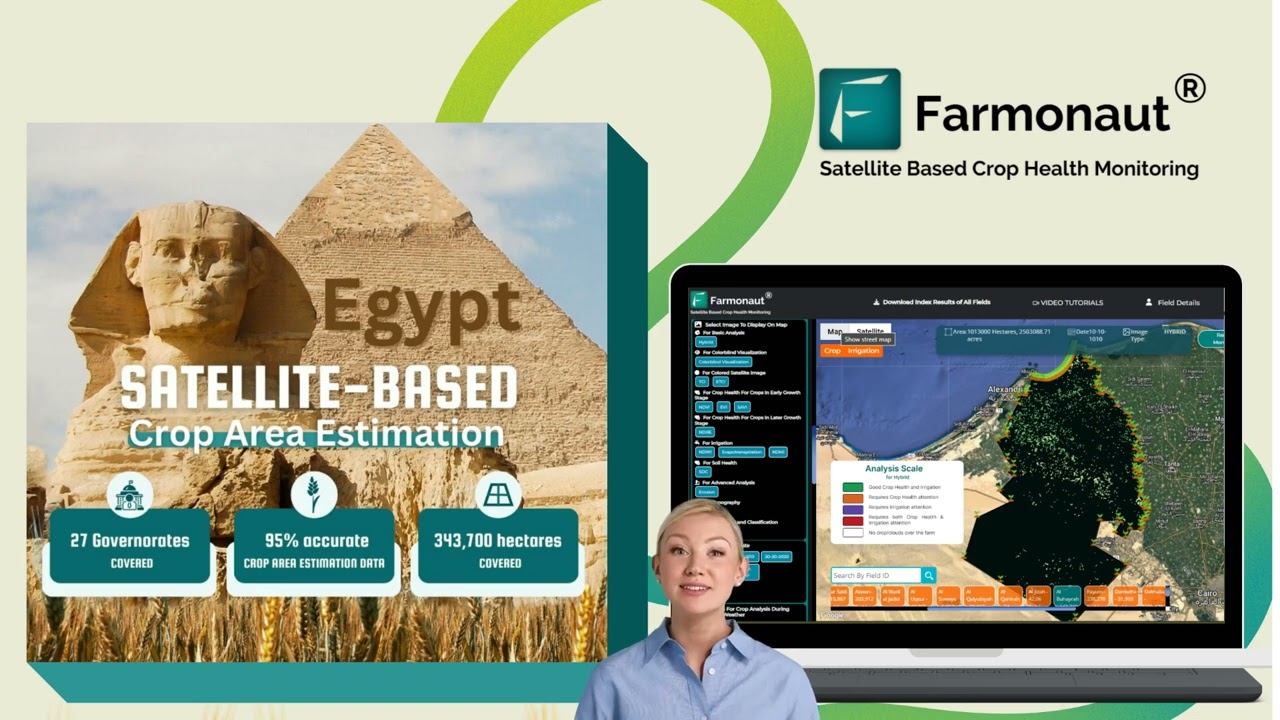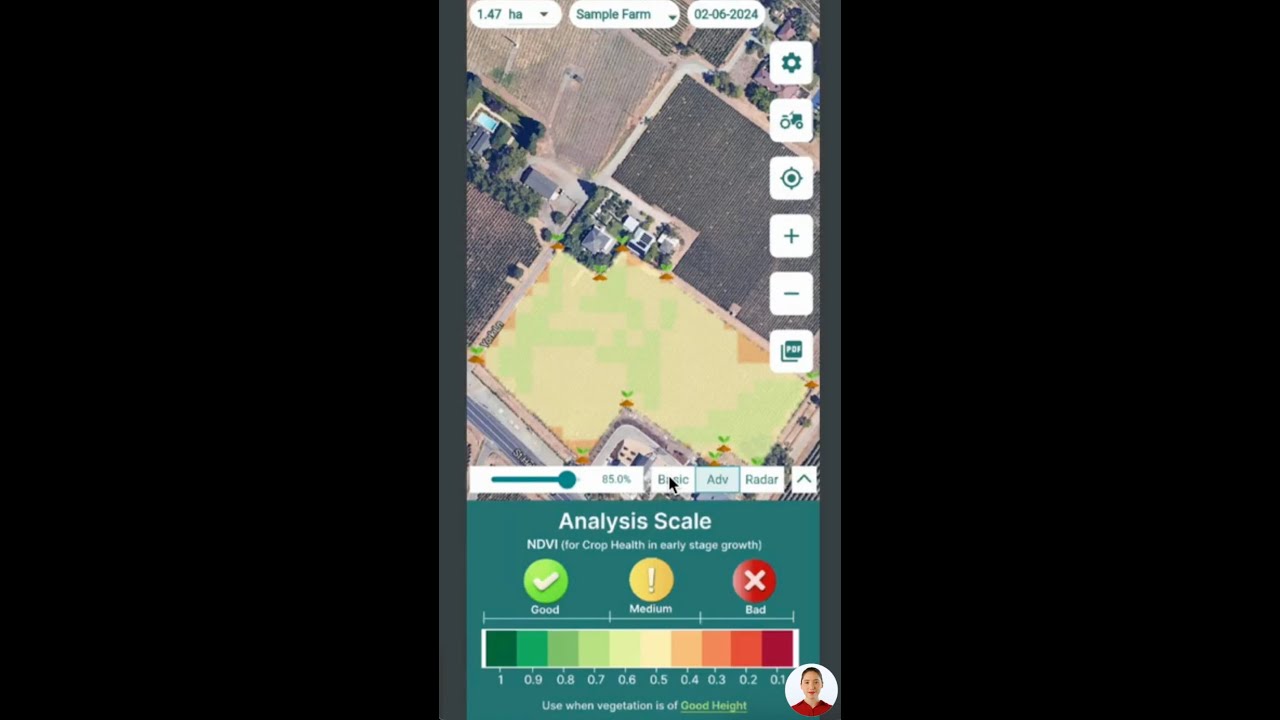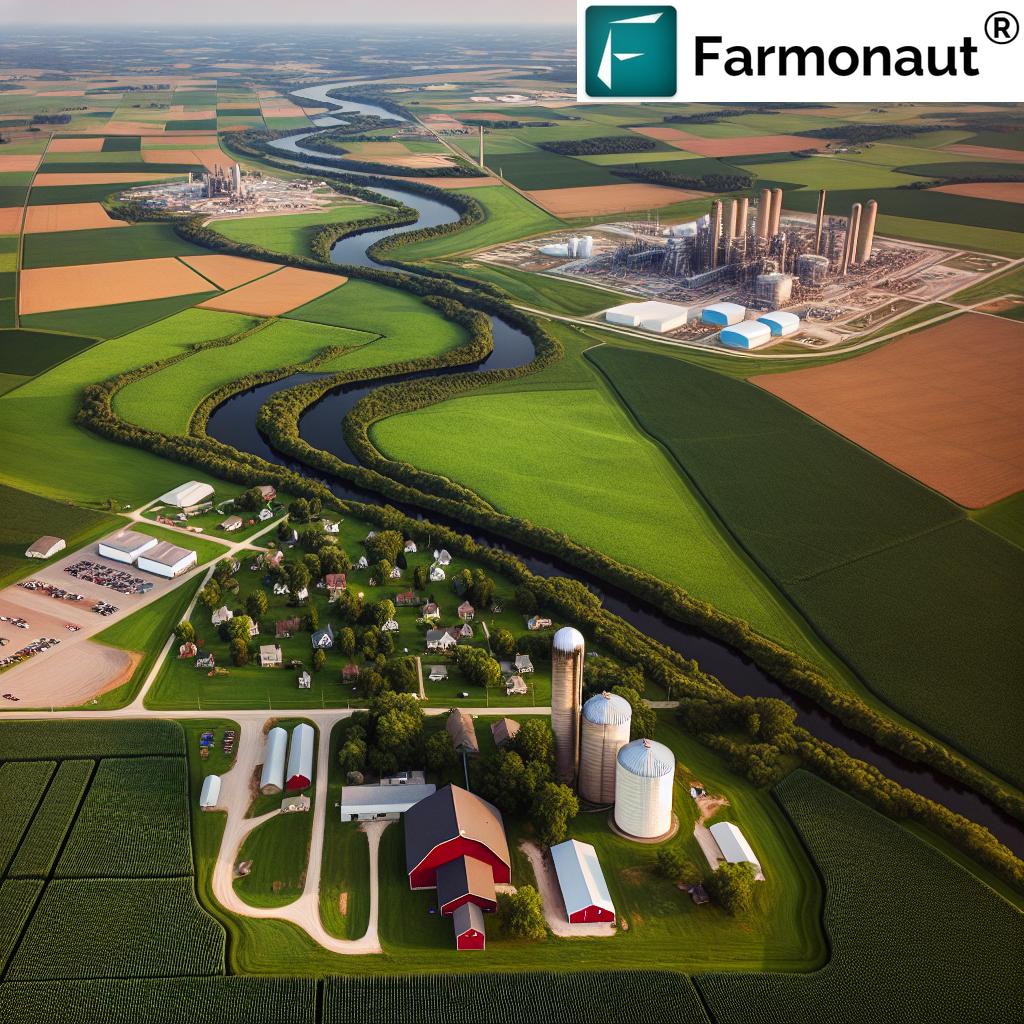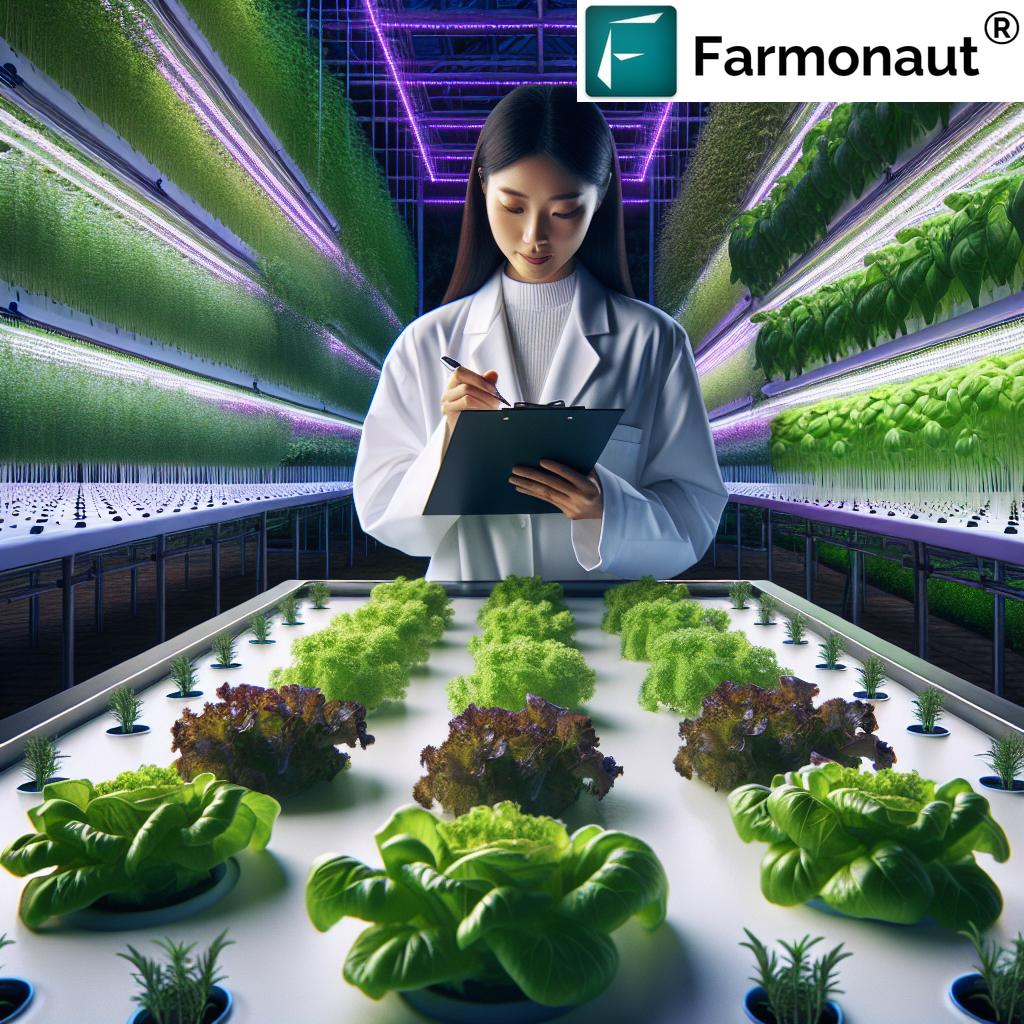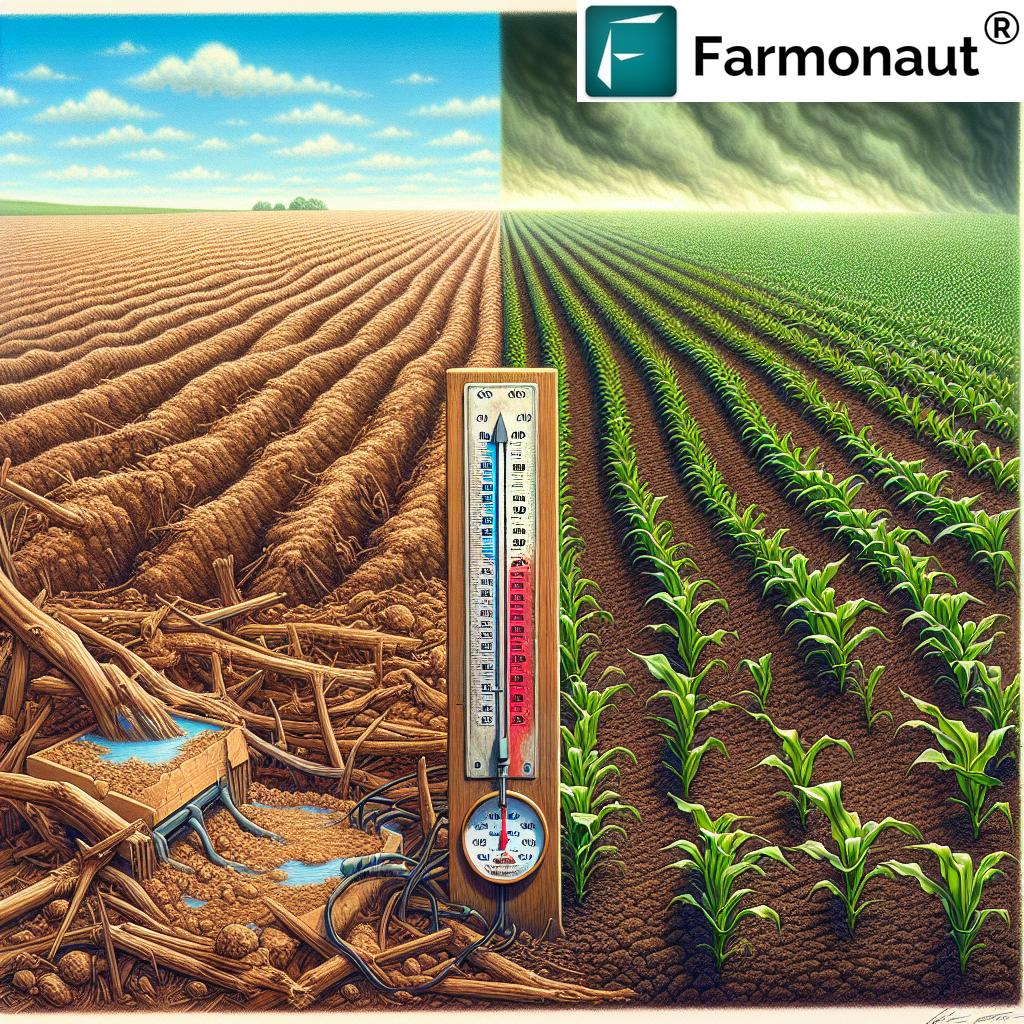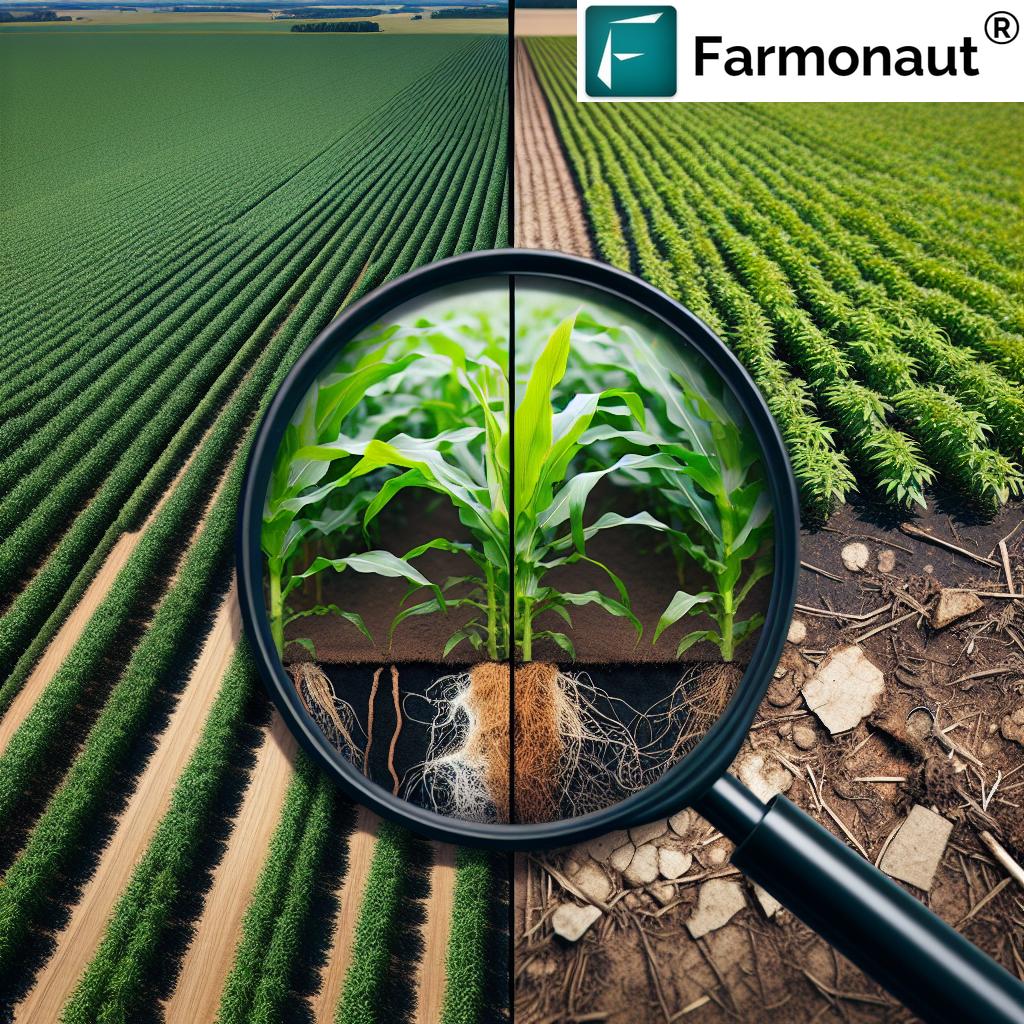Beanstock: Nebraska’s Innovative Farm-to-School Program Promoting Healthy, Locally-Grown Plant-Based Proteins
“Nebraska produces over 1 billion pounds of dry beans annually, making it a top producer in the United States.”
Welcome to the world of Beanstock, Nebraska’s groundbreaking initiative that’s revolutionizing the way we think about school nutrition and agriculture education. As we delve into this exciting program, we’ll explore how Nebraska’s dry beans are taking center stage in an innovative curriculum aimed at promoting plant-based proteins in schools across the state.
The Birth of Beanstock: Cultivating Healthy Habits
In the heart of America’s heartland, a new educational movement is sprouting. Beanstock, officially launched by the Nebraska Department of Education (NDE) in March to coincide with National Nutrition Month, is more than just a curriculum—it’s a celebration of Nebraska’s agricultural heritage and a step towards a healthier future for our students.
This free, flexible program offers middle and high school educators a treasure trove of lessons that explore the multifaceted world of dry beans and other specialty crops. From history and art to cooking and economics, Beanstock covers it all, ensuring that students gain a comprehensive understanding of one of Nebraska’s most important commodities.
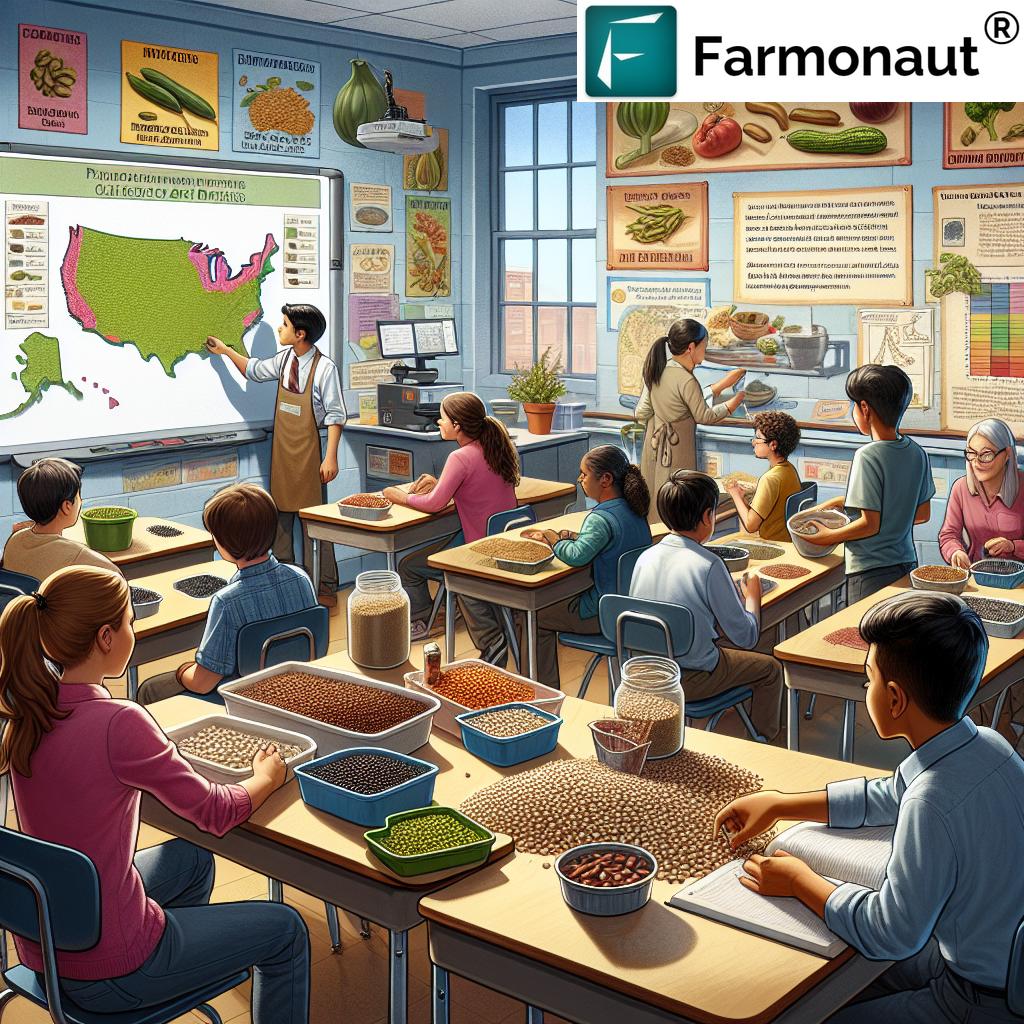
The Masterminds Behind the Beans
What makes Beanstock truly special is its origin story. The curriculum was crafted by a class of Family and Consumer Sciences (FCS) majors at Wayne State College. These budding educators poured their creativity and knowledge into developing presentations, quizzes, and activities that would captivate young minds. To ensure academic rigor, an experienced FCS teacher reviewed the lessons, aligning them with NDE curriculum standards.
But the NDE didn’t stop there. They wrapped this educational package in a fun, festival-like brand, drawing inspiration from the energy of iconic events like Woodstock and Junkstock. This vibrant approach aims to excite both teachers and students, making learning about beans an adventure rather than a chore.
Farm to School: Connecting Communities with Fresh, Healthy Food
Beanstock is a shining example of the Farm to School program, an initiative that strengthens the bond between communities and their local food producers. By changing food purchasing and education practices in schools and early care settings, Farm to School is transforming the way our children think about and interact with their food.
Jessie Coffey, director of NDE’s Whole Child Program, emphasizes the importance of this connection: “Dry beans are delicious, affordable, and packed with protein — and they also have a fascinating story to tell about Nebraska’s history and economy. Through these engaging, educational, and beautifully designed lessons, we hope to inspire Nebraska students to learn more about Nebraska agriculture and healthy, locally grown food products.”
Beyond the Classroom: Hands-On Learning
Beanstock isn’t just about textbook learning. The program encourages students to get their hands dirty (metaphorically speaking) with a variety of interactive activities. From plant-based protein word searches to classroom-friendly chickpea parfait recipes, students are invited to explore the world of beans in fun and creative ways.
One of the most exciting aspects of Beanstock is its TikTok challenge, which encourages students to share their bean-inspired creations with the world. This modern approach to learning not only engages students but also helps spread awareness about the benefits of plant-based proteins to a wider audience.
From Farm to Lunchroom: Transforming School Meals
The impact of Beanstock extends beyond the classroom and into the school cafeteria. Students have the opportunity to enjoy dry bean recipes at lunch, thanks to school-focused recipes developed as part of the program. This practical application of their learning helps reinforce the connection between agriculture, nutrition, and everyday life.
To further encourage creativity and engagement, Beanstock includes a statewide recipe competition. This contest not only showcases the culinary talents of Nebraska’s students but also promotes the versatility of dry beans as a nutritious and delicious ingredient.
The Educators’ Perspective: Cultivating Knowledge
For the Wayne State College students who developed the Beanstock curriculum, the experience was invaluable. Payje Rayback, now a first-year Family and Consumer Sciences teacher at Howells-Dodge Consolidated School District, shared her insights: “I think it’s very important for students to understand where their food comes from and what is native to them in their own state. Teaching students about the produce and plant-based proteins grown in Nebraska, and how it can be incorporated into their everyday lives, creates a stronger connection that may motivate them to explore other local foods.”
Rayback and her classmates didn’t just write lessons; they immersed themselves in the world of beans. They conducted extensive research on bean production in Nebraska, carefully selecting elements that would be most beneficial to students. Their approach was holistic, incorporating activities like art, music, and reading alongside food science to create a well-rounded educational experience.
Taste-Testing for Success
One of the most enjoyable aspects of developing the Beanstock curriculum was the taste-test lab. Rayback and her fellow students experimented with different recipes, exploring how various cooking techniques affect the taste, texture, and appearance of dry beans. This hands-on experience not only informed their lesson planning but also gave them valuable insights into which activities young people might enjoy most.
The involvement of experienced educators in providing feedback ensured that the lessons were not only engaging but also pedagogically sound. This collaborative approach between student teachers and seasoned professionals resulted in a curriculum that is both innovative and effective.
Nebraska’s Bean Bounty: An Economic Powerhouse
While Beanstock is primarily an educational initiative, it’s important to understand the economic context that makes it so relevant. Nebraska is a powerhouse in dry bean production, ranking as the top producer of Great Northern beans and the second-largest producer of Pinto beans in the entire country.
The state’s success in bean production is no accident. Western Nebraska’s arid climate, with its warm days and cool nights, provides ideal growing conditions for dry edible beans. This natural advantage has allowed Nebraska to become a leader in the industry, with significant economic impact.
In 2023 alone, Nebraska’s dry edible beans production resulted in a staggering $82.4 million from 92,000 acres harvested, according to the USDA National Agricultural Statistics Service. These figures underscore the importance of dry beans not just as a nutritional powerhouse, but as a crucial component of the state’s agricultural economy.
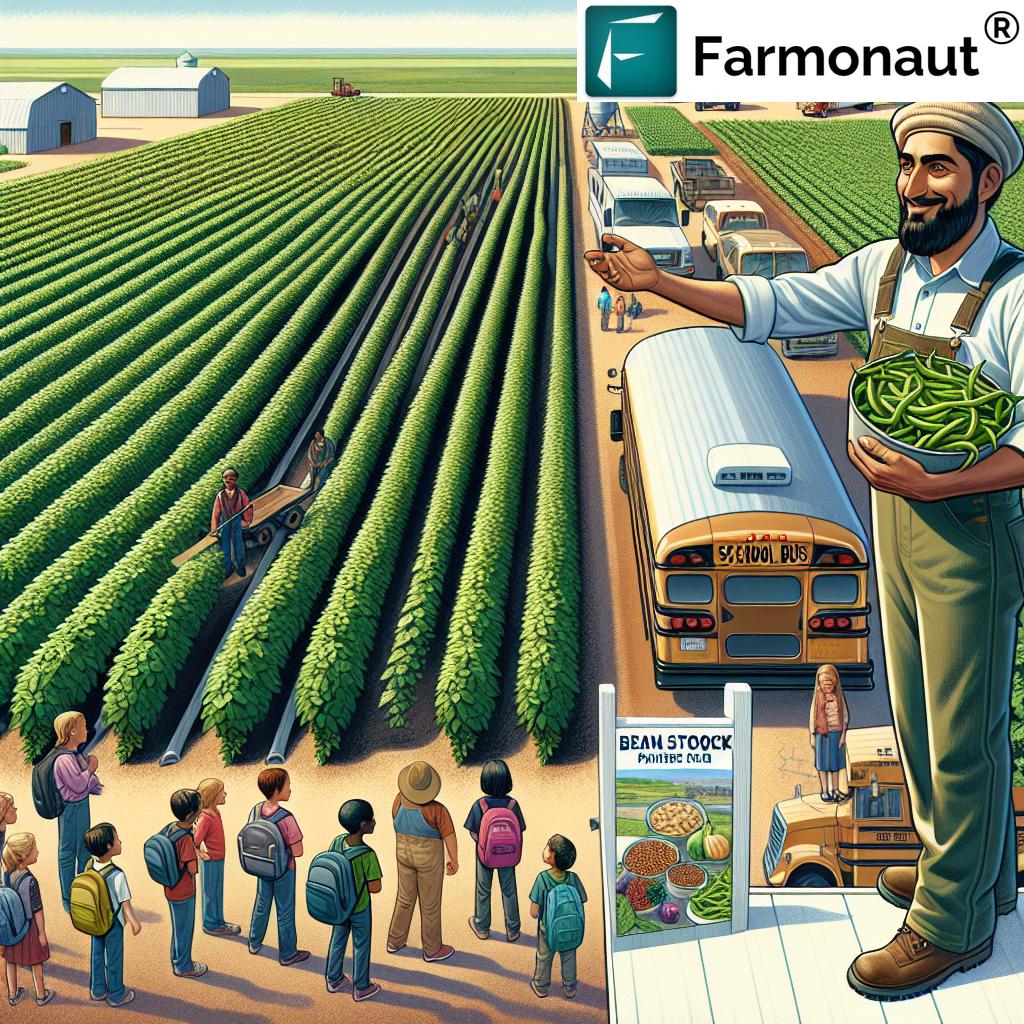
The Nutritional Powerhouse: Dry Beans Decoded
At the heart of Beanstock is a focus on the nutritional benefits of dry beans. These humble legumes are true superfoods, packed with protein, fiber, vitamins, and minerals. Let’s take a closer look at some of the key varieties grown in Nebraska and their unique benefits:
| Bean Variety | Appearance | Nutritional Highlights | Culinary Uses |
|---|---|---|---|
| Great Northern | Medium-sized, white, kidney-shaped | High in fiber and folate, good source of protein | Soups, stews, baked beans |
| Pinto | Medium-sized, speckled beige and brown | Rich in protein, fiber, and minerals like iron and magnesium | Refried beans, chili, burritos |
| Navy | Small, white, oval-shaped | Excellent source of fiber and B vitamins | Baked beans, soups, salads |
| Red Kidney | Large, kidney-shaped, deep red | High in antioxidants, protein, and fiber | Chili, salads, rice dishes |
This diverse array of beans offers endless possibilities for incorporating plant-based proteins into school meals. From hearty chilis to colorful salads, dry beans can be prepared in ways that are both nutritious and appealing to young palates.
Sustainable Agriculture: Beans for a Better Future
Beyond their nutritional benefits, dry beans play a crucial role in sustainable agriculture. As legumes, they have the unique ability to fix nitrogen in the soil, reducing the need for synthetic fertilizers. This natural process not only improves soil health but also contributes to more environmentally friendly farming practices.
By incorporating lessons on sustainable agriculture into the Beanstock curriculum, we’re not just teaching students about nutrition; we’re empowering them to become informed consumers and potential future stewards of the land. This holistic approach aligns perfectly with the growing emphasis on sustainability in both education and agriculture.
Technology in Agriculture: A Modern Approach to Bean Production
While Beanstock focuses on traditional agricultural knowledge, it’s important to recognize the role of technology in modern farming. Companies like Farmonaut are at the forefront of this agricultural revolution, offering innovative solutions that can enhance bean production and sustainability.
Farmonaut’s satellite-based crop health monitoring system, for instance, could be a valuable tool for bean farmers. By providing real-time data on vegetation health and soil moisture levels, this technology allows farmers to make informed decisions about irrigation and pest management, potentially increasing yields while conserving resources.
Additionally, Farmonaut’s carbon footprinting feature aligns well with the sustainability aspects of bean farming. This tool could help farmers and agribusinesses monitor and reduce their environmental impact, further enhancing the eco-friendly profile of dry bean production.
From Field to Fork: The Journey of Nebraska’s Dry Beans
One of the most fascinating aspects of the Beanstock curriculum is its exploration of the journey dry beans take from the field to our plates. This farm-to-table approach helps students understand the entire process of food production, fostering a deeper appreciation for the effort and resources that go into their meals.
The curriculum covers various stages of bean production, including:
- Planting: Students learn about soil preparation, seed selection, and planting techniques specific to dry beans.
- Growing: The curriculum explores the growth cycle of bean plants, including their unique nitrogen-fixing properties.
- Harvesting: Students discover the specialized equipment and techniques used to harvest dry beans efficiently.
- Processing: Lessons cover the cleaning, sorting, and packaging processes that prepare beans for distribution.
- Distribution: The curriculum examines how beans make their way from Nebraska farms to local markets and school cafeterias.
This comprehensive overview not only educates students about agriculture but also highlights the importance of local food systems and the role they play in community health and economy.
Cooking with Beans: Culinary Adventures in the Classroom
One of the most exciting aspects of Beanstock is its hands-on approach to culinary education. The program includes a variety of cooking activities that allow students to experiment with different bean recipes, learning valuable skills while discovering the versatility of this nutritious ingredient.
Some of the popular cooking activities in the Beanstock curriculum include:
- Bean Dip Challenge: Students create their own unique bean dip recipes, experimenting with different flavors and textures.
- Bean Burger Workshop: Classes learn to make plant-based burgers using various types of beans and seasonings.
- International Bean Cuisine: Students explore how beans are used in different cultures, preparing dishes from around the world.
- Bean Dessert Innovation: The curriculum challenges students to incorporate beans into sweet treats, showcasing their versatility.
These cooking activities not only teach valuable culinary skills but also encourage creativity and cultural exploration, making the learning experience both enjoyable and practical.
The Economic Impact: Beans Boosting Local Economies
While Beanstock primarily focuses on nutrition and education, it’s important to recognize the significant economic impact of dry bean production in Nebraska. By promoting locally grown beans, the program indirectly supports local farmers and contributes to the state’s agricultural economy.
Some key economic benefits of Nebraska’s dry bean industry include:
- Job Creation: From farm workers to processing plant employees, the bean industry provides numerous employment opportunities.
- Export Revenue: Nebraska’s high-quality beans are in demand worldwide, contributing to the state’s export earnings.
- Agricultural Diversification: Beans offer farmers an alternative crop option, helping to diversify agricultural production and reduce economic risks.
- Local Business Support: The bean industry supports various local businesses, from equipment suppliers to transportation companies.
By educating students about these economic aspects, Beanstock helps create a more informed citizenry that understands the importance of supporting local agriculture.
Beanstock: Planting Seeds for a Healthier Future
“Beanstock’s curriculum reaches over 100,000 students across Nebraska, promoting locally-grown plant-based proteins in schools.”
As we’ve explored throughout this article, Beanstock is more than just a curriculum—it’s a movement towards healthier, more sustainable eating habits and a deeper understanding of our agricultural heritage. By connecting students with the food they eat, from field to fork, this innovative program is planting the seeds for a healthier, more informed generation.
The impact of Beanstock extends far beyond the classroom. It’s fostering a new appreciation for local agriculture, promoting healthier food choices, and potentially influencing long-term eating habits. As students learn about the nutritional benefits of beans, experiment with new recipes, and understand the economic importance of this crop, they’re becoming ambassadors for healthy, sustainable eating.
Moreover, by incorporating technology and modern agricultural practices into the curriculum, Beanstock is preparing students for the future of farming. Understanding tools like Farmonaut’s satellite-based crop monitoring or its blockchain-based traceability solutions can inspire students to pursue careers in agtech or sustainable agriculture.
Looking Ahead: The Future of Beanstock
As Beanstock continues to grow and evolve, we can expect to see its influence spread beyond Nebraska. The program’s success could serve as a model for other states looking to promote local agriculture and healthy eating in schools.
Potential future developments for Beanstock might include:
- Expanded Curriculum: Including more specialty crops and diverse agricultural practices.
- Technology Integration: Incorporating more agtech elements, possibly partnering with companies like Farmonaut to provide real-world examples of modern farming techniques.
- Community Outreach: Extending the program beyond schools to community centers and adult education programs.
- National Recognition: As the program grows, it could gain national attention, potentially influencing federal policies on school nutrition and agricultural education.
The success of Beanstock demonstrates the power of innovative education to change not just what we learn, but how we think about food, health, and our connection to the land. As we look to the future, programs like Beanstock will play a crucial role in shaping a more sustainable, health-conscious, and agriculturally aware society.
Frequently Asked Questions
- What is Beanstock?
Beanstock is an innovative education curriculum launched by the Nebraska Department of Education to promote plant-based proteins, particularly dry beans, in schools. - Who developed the Beanstock curriculum?
The curriculum was developed by Family and Consumer Sciences (FCS) majors at Wayne State College and reviewed by experienced FCS teachers. - What age group is Beanstock designed for?
Beanstock is designed for middle and high school students. - How does Beanstock promote healthy eating?
Through engaging lessons, cooking activities, and school lunch recipes featuring dry beans, Beanstock encourages students to incorporate more plant-based proteins into their diets. - What types of activities are included in the Beanstock curriculum?
Activities include plant-based protein word searches, classroom-friendly recipes, TikTok challenges, and a statewide recipe competition. - How does Beanstock support local agriculture?
By focusing on Nebraska-grown dry beans, Beanstock promotes local agriculture and helps students understand the importance of supporting local food producers. - What are the main nutritional benefits of dry beans?
Dry beans are high in protein, fiber, vitamins, and minerals, making them an excellent plant-based protein source. - How does Beanstock incorporate sustainability education?
The curriculum includes lessons on sustainable agriculture practices, emphasizing the role of beans in soil health and environmentally friendly farming. - Can schools outside of Nebraska use the Beanstock curriculum?
While designed for Nebraska schools, the curriculum could potentially be adapted for use in other states interested in promoting local agriculture and healthy eating. - How can parents support the goals of Beanstock at home?
Parents can incorporate more bean-based meals into their family’s diet, involve children in cooking, and discuss the importance of supporting local agriculture.
As we conclude our exploration of Beanstock, it’s clear that this innovative program is more than just an educational initiative—it’s a blueprint for a healthier, more sustainable future. By connecting students with the food they eat and the farmers who grow it, Beanstock is nurturing a generation that understands the importance of local agriculture, healthy eating, and environmental stewardship.
For those interested in learning more about how technology is shaping the future of agriculture, we recommend exploring Farmonaut’s range of services. Their crop loan and insurance solutions and fleet management tools are just a few examples of how modern technology is revolutionizing farming practices.
As we look to the future, programs like Beanstock, combined with innovative agricultural technologies, will play a crucial role in ensuring food security, promoting health, and fostering a deeper connection between our communities and the land that sustains us. Let’s continue to support these initiatives and work towards a future where healthy, sustainable eating is not just a choice, but a way of life.
Earn With Farmonaut: Earn 20% recurring commission with Farmonaut’s affiliate program by sharing your promo code and helping farmers save 10%. Onboard 10 Elite farmers monthly to earn a minimum of $148,000 annually—start now and grow your income!
Learn More About Earning With Farmonaut
Ready to explore more about advanced agricultural solutions? Check out Farmonaut’s offerings:
For developers interested in integrating agricultural data into their applications, check out Farmonaut’s API and the API Developer Docs.


